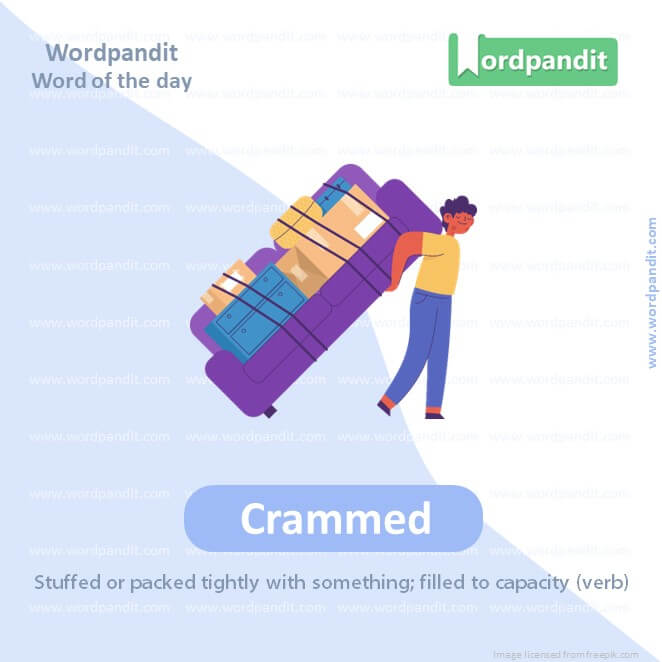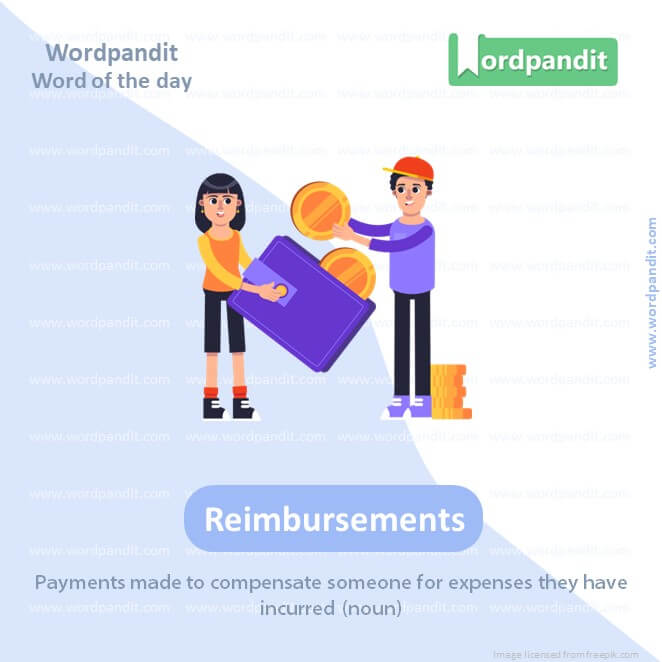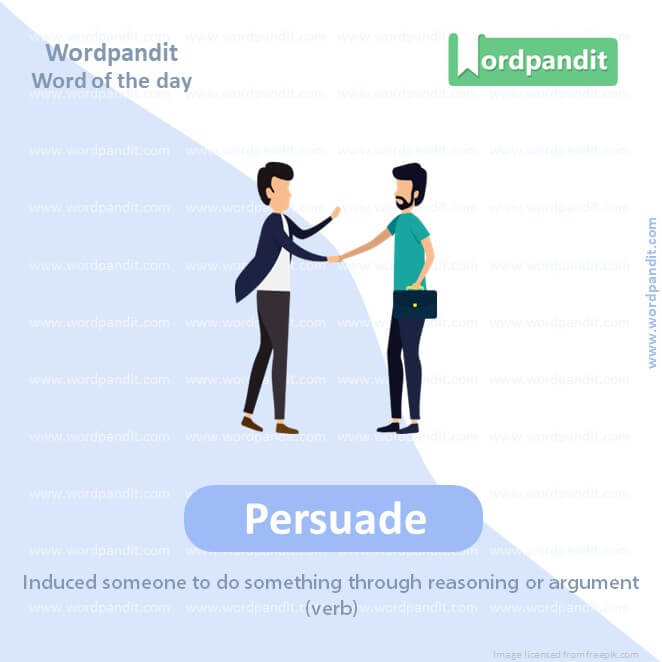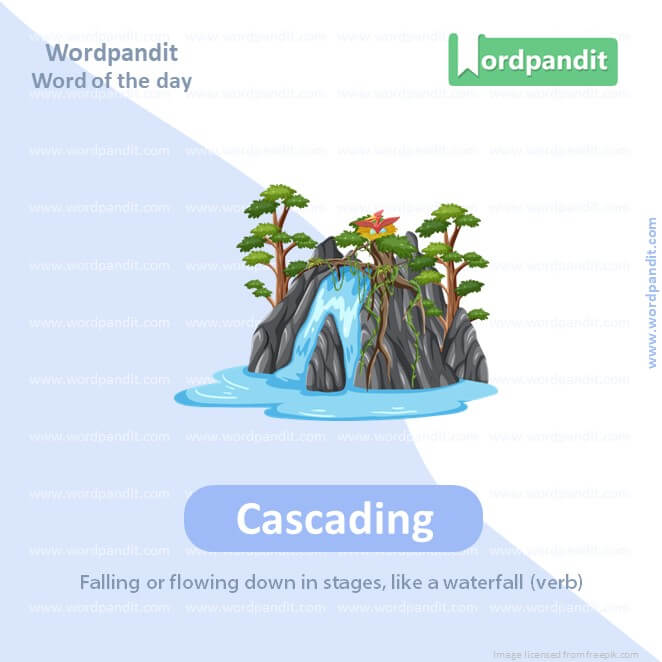Daily Vocabulary Words: List of Daily Used Words in Leading International Newspapers
Hi there. Welcome to this special section @ Wordpandit.
Our endeavour here is very simple: to highlight important daily vocabulary words, which you would come across in leading newspapers in the country. We have included the following newspapers in our selection:
• The New York Times
• The Washington Post
• Scientific American
• BBC
• The Guardian
• Psychology Today
• Wall Street Journal
• The Economist
We are putting in extensive work for developing your vocabulary. All you have got to do is be regular with this section and check out this post on a daily basis. This is your repository of words that are commonly used and essentially, we are posting a list of daily used words. Hence, this has significant practical application as it teaches you words that are used commonly in leading publications mentioned above.
Visit the website daily to learn words from leading international newspapers.
WORD-1: Culminating
CONTEXT: Vladimir Putin’s tightening dictatorship and aggression, culminating in his brutal invasion of Ukraine.
SOURCE: New York Times
EXPLANATORY PARAGRAPH: Culminating is like reaching the top or the most exciting part of something. It’s like when you climb a hill and finally get to the top to see the view.
MEANING: Reaching a point of highest development or a final climax (verb).
PRONUNCIATION: kul-muh-nay-ting
SYNONYMS: Peaking, Climaxing, Concluding, Finalizing, Completing
USAGE EXAMPLE:
1. The event culminated in a spectacular fireworks display.
2. Years of hard work culminated in her winning the award.
3. The campaign culminated with a huge rally.
4. His research culminated in a groundbreaking discovery.
WORD-2: Spontaneous
CONTEXT: And 15th-century bookshops exist, and the joys of spontaneous film-watching and Courvoisier and crisp air combined with blue skies.
SOURCE: The Guardian
EXPLANATORY PARAGRAPH: Spontaneous is when something happens suddenly, without planning it. It’s like when you decide to dance in the rain just because it feels fun.
MEANING: Performed or occurring as a result of a sudden impulse or inclination without premeditation (adjective).
PRONUNCIATION: spon-tay-nee-uhs
SYNONYMS: Impulsive, Unplanned, Unpremeditated, Instinctive, Natural
USAGE EXAMPLE:
1. The crowd broke into spontaneous applause.
2. He made a spontaneous decision to travel.
3. Their conversation was easy and spontaneous.
4. She is known for her spontaneous generosity.

WORD-3: Crammed
CONTEXT: Images of people from Africa crammed into unseaworthy boats desperately trying to cross the Mediterranean, asylum seekers crossing the Channel into Britain, and “caravans” of migrants trying to reach the Mexico-US border all seem to confirm fears that global migration is spinning out of control.
SOURCE: The Guardian
EXPLANATORY PARAGRAPH: Crammed is like fitting lots of things into a small space. It’s like when you put too many toys in your toy box and have to push down the lid to close it.
MEANING: Stuffed or packed tightly with something; filled to capacity (verb).
PRONUNCIATION: kramd
SYNONYMS: Packed, Stuffed, Jammed, Overfilled, Crowded
USAGE EXAMPLE:
1. The bookshelf was crammed with books.
2. They crammed a lot of activities into their vacation.
3. The suitcase was crammed full of clothes.
4. The room was crammed with people.

WORD-4: Reimbursements
CONTEXT: Reinhard also pointed to other administrative barriers, including problems with payments and reimbursements now that the vaccines are no longer provided free of charge to nursing homes.
SOURCE: The Washington Post
EXPLANATORY PARAGRAPH: Reimbursements are like getting your money back after you’ve spent it on something for someone else. It’s like if you buy a gift for a friend with your mom’s money, and then she gives you that money back.
MEANING: Payments made to compensate someone for expenses they have incurred (noun).
PRONUNCIATION: ree-im-burs-muhnts
SYNONYMS: Compensation, Refunds, Repayments, Returns, Paybacks
USAGE EXAMPLE:
1. She submitted her receipts for travel reimbursements.
2. The company offers reimbursements for employee training.
3. He received reimbursements for medical expenses.
4. The policy covers the reimbursements of work-related costs.

WORD-5: Persuade
CONTEXT: House Speaker Mike Johnson (R-La.) said the legislation could help him persuade House Republicans to vote for the administration’s emergency supplemental budget request, which includes about $60 billion for Ukraine in military, economic and humanitarian aid.
SOURCE: The Washington Post
EXPLANATORY PARAGRAPH: Persuade is like convincing someone to do something or to believe in something. It’s like when you talk your friend into trying a new game.
MEANING: Induced someone to do something through reasoning or argument (verb).
PRONUNCIATION: per-swayd
SYNONYMS: Convince, Influence, Encourage, Induce, Coax
USAGE EXAMPLE:
1. He managed to persuade his parents to let him go to the camp.
2. She used facts to persuade the audience.
3. It was hard to persuade him to change his mind.
4. They were trying to persuade customers to buy their product.

WORD-6: Trajectory
CONTEXT: These choices nudged world politics toward a more positive trajectory — a feeling of more people being connected and able to realize their full potential peacefully.
SOURCE: New York Times
EXPLANATORY PARAGRAPH: Trajectory is like the path something takes when it moves through the air. It’s like when you throw a ball, and it makes a curve in the sky before it lands.
MEANING: The path followed by a projectile flying or an object moving under the action of given forces (noun).
PRONUNCIATION: truh-jek-tuh-ree
SYNONYMS: Path, Course, Route, Track, Orbit
USAGE EXAMPLE:
1. The rocket followed a precise trajectory into space.
2. His career took an unexpected trajectory.
3. The ball’s trajectory was altered by the wind.
4. They calculated the trajectory of the comet.
WORD-7: Indispensable
CONTEXT: This is triggering a U.S.-China cold war, mass migrations from south to north and an America that has become more unreliable than indispensable.
SOURCE: New York Times
EXPLANATORY PARAGRAPH: Indispensable is something so important that you can’t do without it. It’s like water for drinking or your favorite teddy bear for bedtime.
MEANING: Absolutely necessary or essential (adjective).
PRONUNCIATION: in-duh-spen-suh-buhl
SYNONYMS: Essential, Crucial, Vital, Necessary, Key
USAGE EXAMPLE:
1. His advice was indispensable to the team.
2. A good dictionary is indispensable for learning a language.
3. Water is an indispensable resource.
4. Her expertise was indispensable to the project.

WORD-8: Cascading
CONTEXT: Israel’s election of the most right-wing government in its history; the cascading effects of climate change; the loss of control over America’s southern border.
SOURCE: New York Times
EXPLANATORY PARAGRAPH: Cascading is like things falling or flowing down in stages. It’s like when water flows over steps in a stream, falling down one after another.
MEANING: Falling or flowing down in stages, like a waterfall (verb).
PRONUNCIATION: kas-kay-ding
SYNONYMS: Flowing, Tumbling, Falling, Pouring, Spilling
USAGE EXAMPLE:
1. The flowers were cascading down the wall.
2. Data is cascading through the network.
3. The lights were cascading from the ceiling.
4. She wore a dress with cascading ruffles.
WORD-9: Practitioner
CONTEXT: She spoke with a nurse practitioner who worked in two nursing homes that were located just five miles apart in rural Tennessee.
SOURCE: The Washington Post
EXPLANATORY PARAGRAPH: A practitioner is someone who does a certain job, especially a job that involves a lot of training or education. It’s like a doctor or a teacher who uses what they’ve learned to do their work.
MEANING: A person actively engaged in an art, discipline, or profession, especially medicine (noun).
PRONUNCIATION: prak-tish-uh-ner
SYNONYMS: Professional, Expert, Specialist, Clinician, Doctor
USAGE EXAMPLE:
1. She is a well-respected medical practitioner.
2. The seminar was for practitioners in the field of psychology.
3. He became a practitioner of natural medicine.
4. As a legal practitioner, she dealt with many complex cases.
WORD-10: Reconciliation
CONTEXT: India’s embrace of globalization, thanks to choices initiated by Manmohan Singh. The expansion of the European Union, the election of America’s first Black president, and the evolution of South Africa into a multiracial democracy focused on reconciliation rather than retribution — all the result of good choices from both leaders and led.
SOURCE: New York Times
EXPLANATORY PARAGRAPH: Reconciliation is like making up after a fight or disagreement. It’s when people who were upset with each other decide to be friends again.
MEANING: The restoration of friendly relations; the action of making one view or belief compatible with another (noun).
PRONUNCIATION: ree-kon-sil-ee-ay-shun
SYNONYMS: Resolution, Settlement, Agreement, Harmony, Accord
USAGE EXAMPLE:
1. The couple worked towards reconciliation after the argument.
2. Reconciliation between the two countries was a historic event.
3. The therapy focused on reconciliation within the family.
4. Financial reconciliation is important at the end of the fiscal year.
Vocabulary Words with Meaning
Penetrating the rich tapestry of language, the essence of ‘vocabulary words with meaning’ is a crucial aspect. It’s these seeds of knowledge that bud into fluent conversations and comprehensive understanding. The knack of grasping ‘vocabulary words with meaning’ is pivotal in language learning, but it demands a nuanced approach and strategy.
Learning ‘vocabulary words with meaning’ isn’t about mechanically memorizing heaps of words. It’s about building connections and creating a profound understanding of these words. A promising approach to assimilate ‘vocabulary words with meaning’ involves utilizing a wide range of resources including literature, films, music, and digital content. This immersion provides a broad context and diverse settings for these words, simplifying their comprehension and use.
When you’re focusing on ‘vocabulary words with meaning’, remember to incorporate memory-enhancing techniques into your learning regimen. Tools like flashcards or recall-based applications can aid significantly in long-term retention of these words. Additionally, mnemonic strategies, associating words with distinctive images or stories enhance memory recall and understanding.
The journey of mastering ‘vocabulary words with meaning’ also benefits greatly from practice and application. Engage in conversations using the language, express your thoughts in writing, and try to incorporate newly learned words into your routine. This not only enhances your familiarity with the words but also aids in an intimate understanding of their connotations and denotations.
To sum up, learning ‘vocabulary words with meaning’ is akin to assembling a jigsaw puzzle: it requires patience, strategy, and persistence. But the picture that finally emerges is a beautiful tapestry of language – vivid, articulate, and expressive. So, set your sails toward the voyage of ‘vocabulary words with meaning’, and discover the joy of speaking and understanding a language with finesse.











